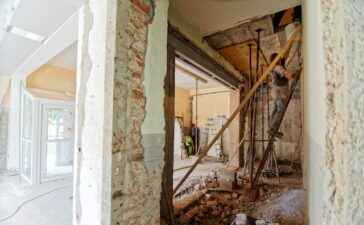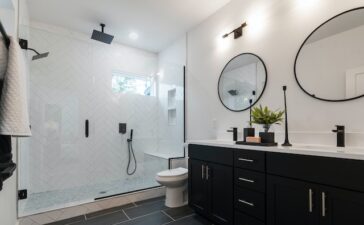It is quite a frequent request to fix or restore garage doors, and a lot of the time, the issue is caused by something that might have been avoided with routine maintenance. We’ve compiled acomplete list of the issues you could run into with garage doors.
Rollers from an old garage door
Rollers are required to travel up and down the track system more than a thousand times during the course of your garage doors’ lifespan. Unsurprisingly, this may cause them to become worn out. You should replace your rollers about every five years in order to avoid future garage door problems and incredibly expensive repairs caused by roller breaking.

Unable to close, an automatic garage door
The biggest moving object in the room with the most traffic in your house will be the garage door. It can be simple for the safety sensors to inadvertently relocate because members of the family (and pets!) use it often as the main entry. The first thing that should do if you find that your garage door won’t shut is to make sure the safety sensors are set properly.
Lubrication of the operator/motor rail has been disregarded.
Not all garage door openers require lubrication, but those that do should be serviced every one to two years. Other parts, such the screw drive operators’ rails, will require routine lubrication. Please remember that chain and belt drives never require oil, despite what some garage door repair firms may tell you.
The lubrication of the garage door hinge has indeed been neglected.
We can’t emphasise this enough: maintaining your garage door hinges is a great technique to prevent them from breaking from repeated use. It truly is as easy as taking some lubricant, like WD-40, and lightly spraying them once a year for a faster and quieter running door.
There are odd noises coming from the garage door
If your garage gate is squeaking, creaking, or grinding more than normal, it may be time to grease the working parts. However, be careful around springs. Other potential causes of these garage doors include wires or rollers that need to be replaced. But if you occasionally hear a loud bang, that could be a symptom of a damaged spring that has to be fixed right away by a pro.

The garage door is partially or entirely jammed.
A bent track or a damaged moving component, such as a pulley, is frequently to blame when a door is having trouble moving smoothly or is completely stuck. Look for and remove any debris or blockages in the wheel tracks. Make sure that you regularly lubricate the moving parts as part of your repair routine because this could be another cause of your door sticking.
The garage door doesn’t really shut completely.
This can be caused by problems with the limit switch in the event of automatic doors. Check for any obstacles in the door’s path or covering the picture eye sensor if a garage opening is hitting the floor before rising back up. Mechanical causes may also include damaged cables, twisted tracks, or damaged part.





